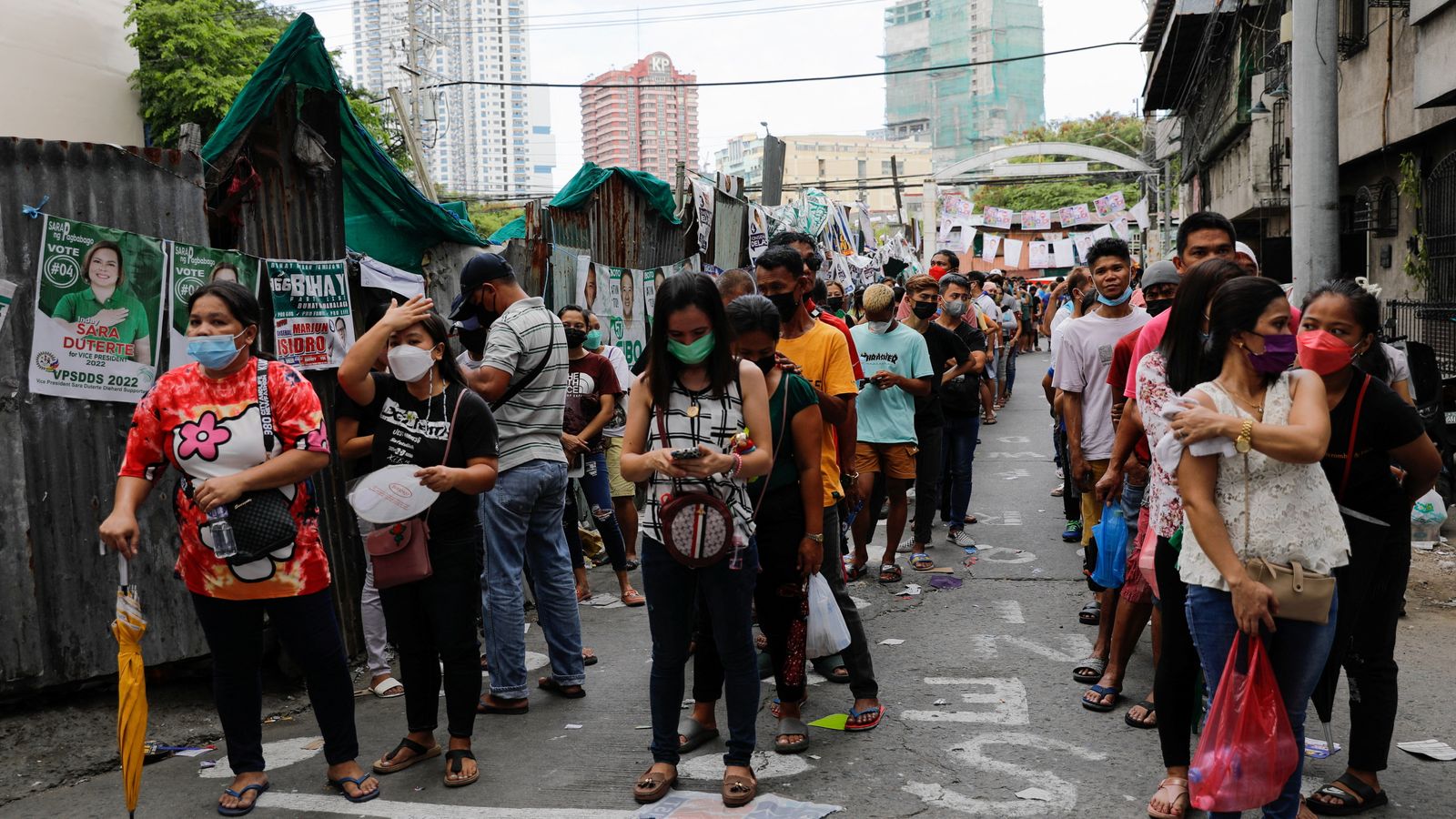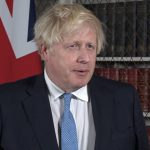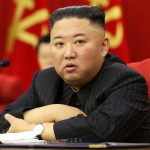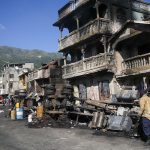People in Philippines are going to the polls to select their next leader as part of nationwide elections.
The race to become president is expected to go to either the son of late dictator Ferdinand Marcos or a human rights lawyer, the current vice president Leni Robredo.
Ferdinand Marcos Jr has refused to acknowledge human rights abuses and the unexplained wealth accrued by his family during his father’s dictatorship and has appealed for national unity.
He and Ms Robredo have been placed way ahead of eight other presidential hopefuls in opinion polls, including former world champion boxer Manny Pacquiao.
The next president will take charge of a nation battered by a struggling economy and is expected to face calls to prosecute outgoing leader Rodrigo Duterte for thousands of deaths as part of his crackdown on illegal drugs.
The International Criminal Court has been investigating the killings of thousands of mostly poor petty drug suspects as a possible crime against humanity.
A victory for Mr Marcos would be a stunning reversal of the 1986 pro-democracy uprising that saw his father ejected from office and cast into global infamy.
Tropical Storm Megi kills at least 25 people as Philippines hit by floods and landslides
Typhoon Rai: At least 375 dead after powerful storm hit Philippines as governor pleads for more aid
Philippines: Over 200 people dead after Typhoon Rai hits country
Many Filipinos aware of the human rights atrocities and plunder that unfolded under that dictatorship would likely push back against any perceived threat to democracy or attempt by Mr Marcos to recover assets seized from his family.
Problems facing the eventual election winner will include an economy badly hit by the coronavirus pandemic, deeper poverty and unemployment, hyperinflation due to skyrocketing oil and gas prices, decades-old insurgencies and inflamed political divisions.
Mr Marcos, 64, is making the most impressive attempt yet of the Marcos family to recapture the presidency.
His mother, Imelda Marcos, twice unsuccessfully tried to become leader after returning with her children to the Philippines from exile in the United States, where her husband died in 1989.
Married to a lawyer, with whom he has three sons, the younger Mr Marcos has managed to distance himself from controversies including a past tax conviction and the his family’s refusal to pay a huge estate tax.
He has repeatedly stuck to a battle cry of national unity – while fending off accusations he funded a long social media campaign that harnessed online trolls to smear opponents and whitewash the Marcos family’s chequered history.
Mr Marcos’s main challenger, Ms Robredo, was an economics student at the University of the Philippines in the 1980s, where she joined the huge protests that led to the removal of the elder Marcos.
Please use Chrome browser for a more accessible video player
The 57-year-old went on to take up law and won a seat in the House of Representatives in 2013 in her first foray into politics after her husband, a respected politician, died in a plane crash in 2012.
She defeated Mr Marcos by a narrow margin in their first electoral clash, the 2016 vice presidential race. She has focused during the campaign on defending human rights and empowering the poor partly by teaching them their legal rights.
The daughter of a trial court judge, Ms Robredo does not belong to any of the prominent families that have dominated Philippine politics for generations, and is running as an independent who is supported by a network of campaign volunteers.
As the opposition vice president, who was separately elected from Mr Duterte, she condemned the killings of mostly poor drug suspects as part of his crackdown, angering the brash-talking leader and straining their ties for years.
The mother-of-three has been lauded for her integrity and a lifestyle that shuns the trappings of power – with her regularly travelling alone by bus to her home province as a congresswoman.
On the bill alongside 43-year-old Pacquiao – who vowed to build houses for the poor and lock up corrupt politicians in a “mega-prison” – is Manila mayor Isko Moreno, a 47-year-old former TV heartthrob, who has sought to exploit his rags-to-power life story and public awe over his huge clean-up of the capital.
Senator Panfilo Lacson, meanwhile, is a 73-year-old former national police chief who has promised to continue exploiting his investigative skills to expose major government corruption.
Along with the presidency, more than 18,000 government posts will be contested in the elections, including half of the 24-member senate, more than 300 seats in the house of representatives, along with provincial and local offices across the archipelago of more than 109 million Filipinos.
With 67 million people registered to cast their ballot, a partial, unofficial count could reveal a clear winner within hours of polls closing.






















